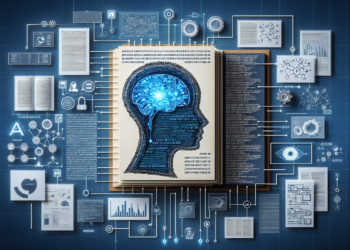Artificial Intelligence (AI) has radically transformed multiple industrial sectors, and e-commerce is no exception. The online product search process, once reliant on simple algorithms and manual filters, is now energized by AI, providing consumers with personalized results and intuitive search experiences.
Foundations in AI Search
The technical framework behind the online product search is grounded in information retrieval (IR), a discipline that marries natural language processing (NLP), data mining, and machine learning. The cornerstones of IR include vector space models and classification algorithms that assign a numerical representation in feature space to both queries and items in the inventory.
Advancements in Deep Learning Models
Recently, deep learning models have significantly enhanced IR. Convolutional (CNNs) and recurrent (RNNs) neural networks, along with sophisticated attention networks and transformers, are capable of capturing patterns and correlations in vast datasets of user and product information. In particular, systems like BERT (Bidirectional Encoder Representations from Transformers) and GPT (Generative Pretrained Transformer) have achieved remarkable progress in understanding context and subtleties in user queries.
Personalization and Deep Learning
AI has not only improved the relevance of search results but has also personalized the experience for each user. Deep learning algorithms analyze navigation behavior, past purchases, and interactions to model individual preferences. This enables the recommendation of pertinent products beyond the explicit query, applying techniques such as siamese neural networks that compare similarities between users and products.
Semantic Search and Contextual Understanding
Semantic search goes beyond keywords to understand the intention and meaning behind a query, which requires a profound analysis of language. NLP models with contextual understanding abilities, like ELMo (Embeddings from Language Models) and the aforementioned BERT, interpret words based on their use within complete sentences, providing a nuanced comprehension that significantly improves the relevance of search results.
Advanced Indexing and Classification
Intelligent indexing is another area where AI has made a significant impact. Using classification and clustering algorithms, such as K-means and self-organizing neural networks, systems are capable of automatically organizing and labeling large product inventories.
Dialogue Systems and Chatbots
AI-based automated dialogue systems, such as chatbots, play an essential role in interacting with users to refine searches and offer assistance. These systems have evolved from simple rule-based scripts to intelligent agents thanks to the application of sequential processing techniques like LSTM (Long Short-Term Memory) and attention mechanisms.
Challenges and Ethical Considerations
The widespread adoption of AI in product search is not without challenges. Concerns such as data privacy, algorithmic biases, and system transparency must be addressed with careful regulation, the ethical design of algorithms, and user awareness.
Case Study: Amazon
A prime example of the evolution of AI in product search is Amazon. Its recommendation system, A9, utilizes machine learning and NLP to continuously improve product search relevance. A9 has incorporated deep learning techniques to offer visual results through image identification, enhancing user interaction and satisfaction.
Future Projections
In the future, the integration of complex reasoning capabilities and fresh natural language generation is expected to further enrich the search experience. Moreover, the adoption of distributed AI and federated learning systems could democratize access to sophisticated search technologies, allowing small and medium-sized businesses to compete with e-commerce giants.
The field of online product search, invigorated by AI, continues to expand at a dizzying pace. As technologies advance and user demands become more sophisticated, we can only anticipate further innovations that continue to reshape our way of interacting with e-commerce and, essentially, with the world as a product of artificial intelligence.






















